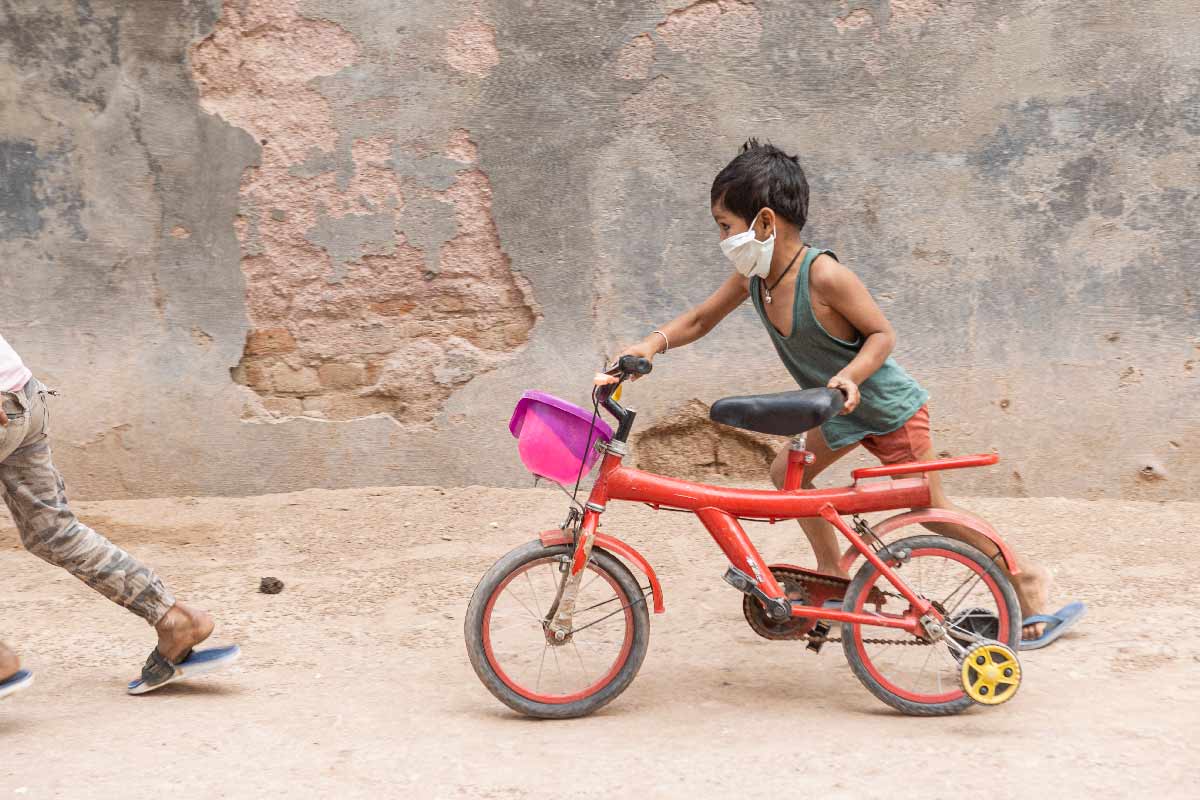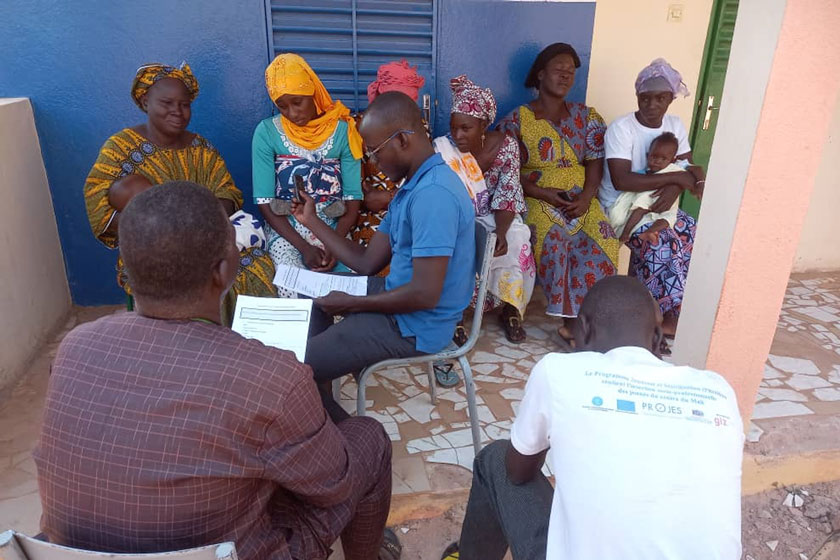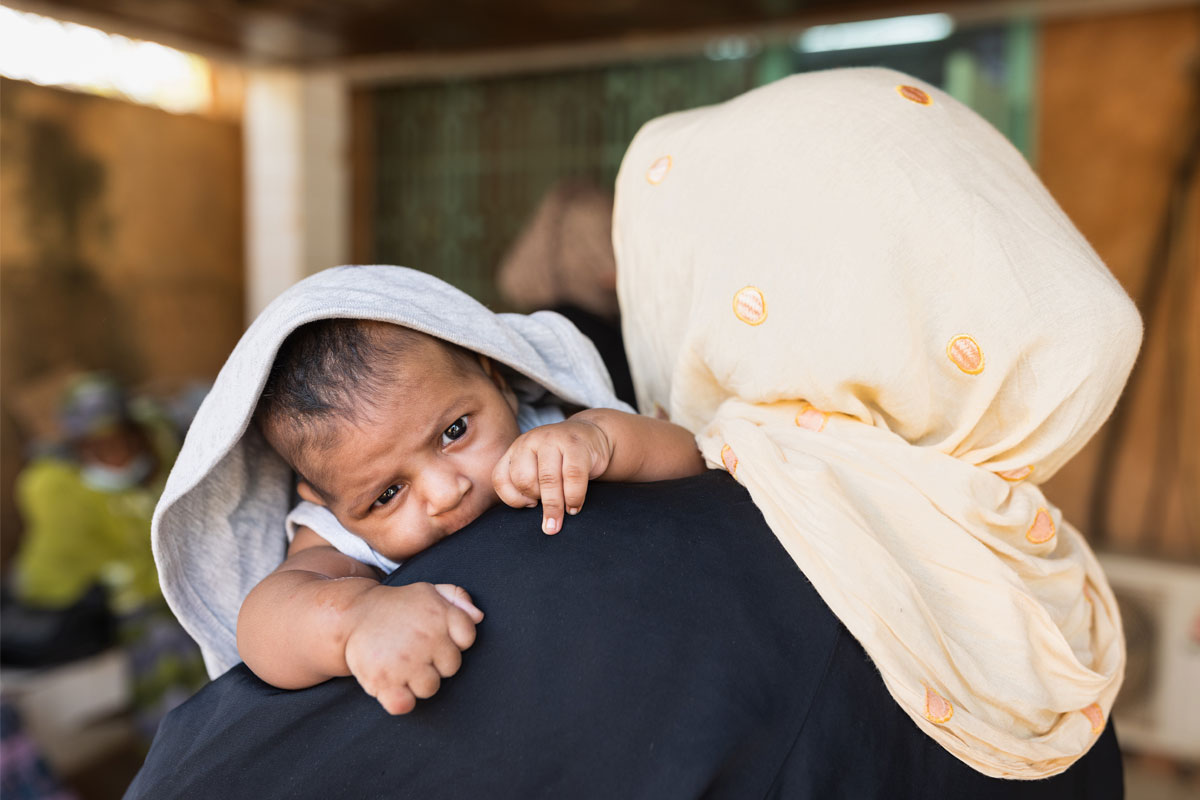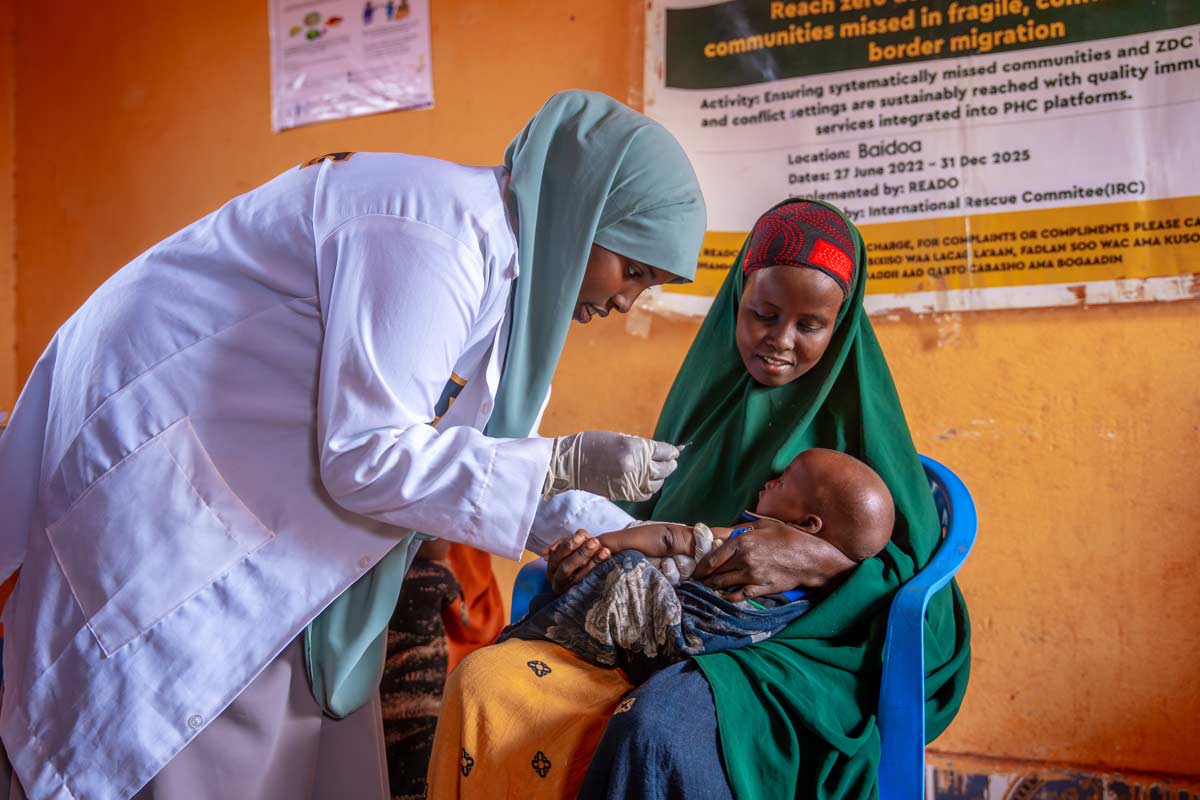In Port-au-Prince, weekend clinic hours make all the difference
Meeting busy working parents halfway has allowed more of them to get their kids protected.
- 18 March 2025
- 5 min read
- by JSI
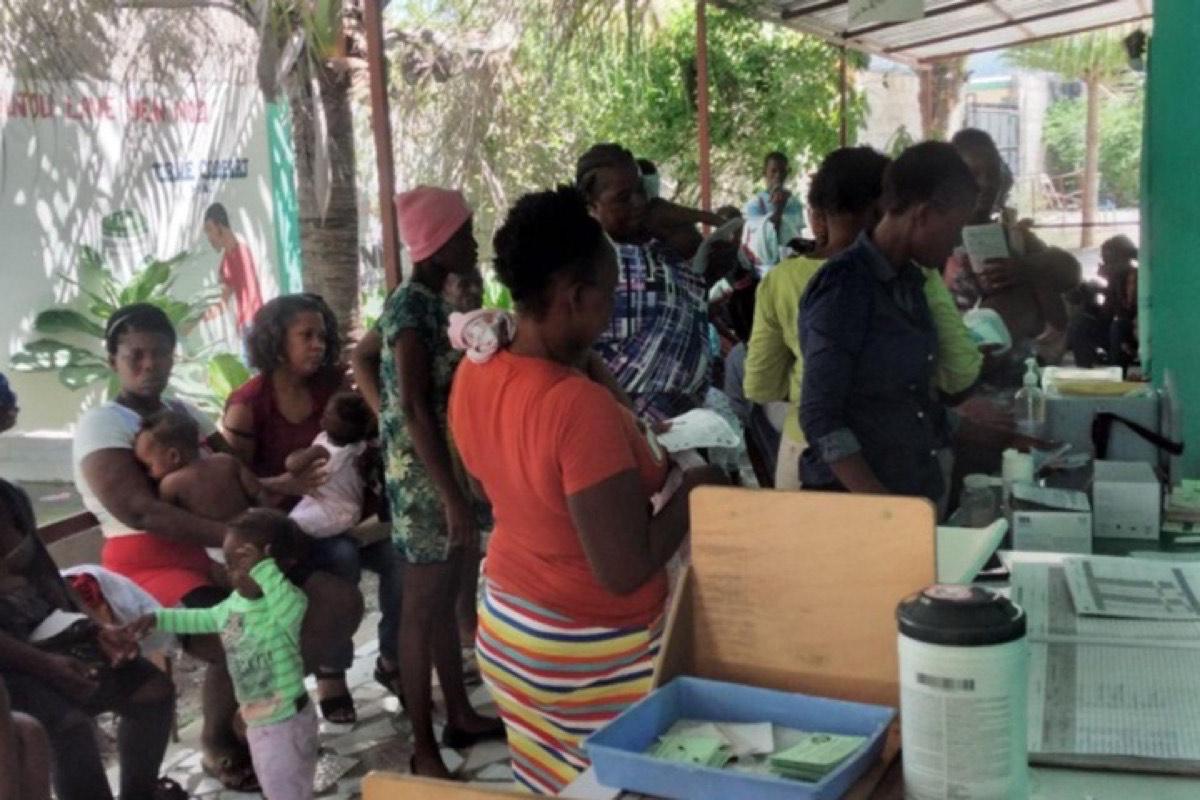
Berger Mimose, a mother of four in the Drouillard community in Port-au-Prince, faces a challenge all too familiar to parents: juggling work demands and family responsibilities with little room left for weekday errands. For Mimose, those squeezed-out errands have included visits to the health centre to get her kids vaccinated. “During the week, I don’t have time,” she says, explaining that the standard clinic hours clashed with her busy schedule.
That’s a familiar challenge for working people in Haiti, and beyond – but one with potentially dire consequences, as, despite progress in the country, many children remain exposed to preventable illnesses. In 2017, the Gavi-funded and JSI-implemented Haiti Urban Immunization project began to trial a simple fix.
With 21 sites implementing extra hours, the results are remarkable. In Cité Soleil, the number of children vaccinated with Penta 3 has significantly increased, rising from 3,167 in 2017 to over 5,400 in 2023.
Collaborating with health officials and community leaders, the project listened to parents to understand the barriers they faced, and determined that extending clinic hours to weekends could be the solution. Based on results of an equity study from the Ministry of Public Health and Population (MSPP) conducted in 2017, JSI, in collaboration with the MSPP and community health managers, selected 21 health centres to try out a revised working schedule.
Health workers reprogrammed their activities, incorporating Saturdays and Sundays into their work plans. Parents could bring their children for immunisation on Saturdays and Sundays. For Mimose, one such Saturday brought much needed relief. Her young child had been battling persistent vomiting, and she recalls the sense of reassurance when a health worker not only administered a vaccine to her child but also provided oral rehydration salts. “My child recovered. It was a blessing,” she says.
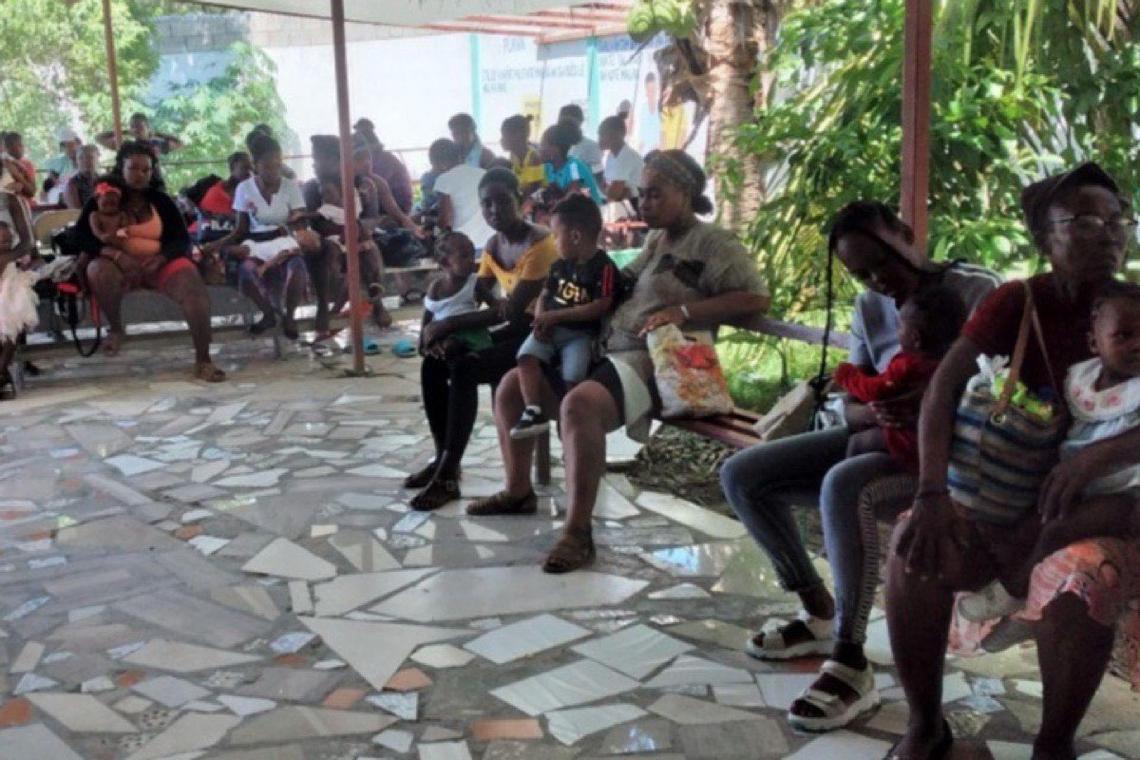
Coverage leaps
This adjustment is particularly crucial for families in Delmas and Cité Soleil, two communes located in the capital Port-au-Prince, where vaccination coverage is critically low. With 21 sites implementing extra hours, the results are remarkable. In Cité Soleil, the number of children vaccinated with Penta 3 has significantly increased, rising from 3,167 in 2017 to over 5,400 in 2023.
Mimose’s story is just one of many, reflecting a widespread sense of relief among parents. Thamara Manius, a working mother juggling tight schedules, highlights the difference, “Extra work hours [at the clinic] are very good for me because I have time to take my child for vaccinations on time and when needed.”
Desir Thaysha, a caregiver struggling to balance a full roster of daily commitments, underscores the importance of accessibility: “Sometimes we can’t come during normal hours. The extra hours help us so that children don’t miss doses.”
Verdieu Andresse, another caregiver, emphasises the broader impact: “It allows us to get our children vaccinated on any day for people who work or sell throughout the week. It ensures that all children get vaccinated on time.” These voices capture the profound relief and reassurance that extended hours bring to parents across these communities.
Have you read?
Health workers are also witnessing the transformative impact of weekend immunisation services. Jacqueline François, head auxiliary nurse for the vaccination department at Pelerin Health Centre in Cite Soleil, shares her experiences working at a facility that offers weekend hours: “Parents are thrilled. They often tell us, ‘We can finally vaccinate our children without missing work.’ For many families, Saturdays and Sundays are more than just convenient, they have become lifesaving opportunities.”
François recalls a particularly impactful moment: “We found a child who had never been vaccinated. During the extra hours, we provided all the necessary doses and scheduled a follow-up. It was a turning point for that family.”
Gerald Dessalines, another dedicated health worker, notes the broader impact: “These extra hours have made vaccination services more accessible. Parents even help us set up posts in their neighbourhoods. It’s a real collaboration.”

Word spreads
The initiative has garnered strong community support, with parents, leaders, and residents actively contributing to its success. They recognise the positive impact and work together to organise and promote these extended hours, ensuring more children receive their vaccinations on time. Jean Anilus, a community leader, explains, “We organise meetings and go door-to-door to spread the word. The community’s response is overwhelmingly positive. Last year, we even honoured parents who ensured their children received all vaccine doses.”
Monreau Hermina, another community leader, praises the initiative: “On Saturdays, we welcome a large number of parents. They appreciate the convenience and the effort to bring services closer to them. It’s deeply gratifying to see their satisfaction.”
In a place where every visit to a clinic was once a struggle, the simple adjustment of services to include weekend hours has proven a lifeline for families. This small, yet profound, change underscores what can happen when communities and health systems come together with a shared goal: to ensure every child has a healthy start in life.
The Ministry of Health and JSI are committed to continuing this intervention, recognising the profound impact it has on community health. By sustaining the extended clinic hours, JSI and partners aim to reach children who have not received any vaccines and those who are not fully immunised, enhancing health outcomes and ensuring that every child has the chance to grow up healthy and protected. This initiative goes beyond merely adjusting service hours – it’s a crucial step in ensuring children receive a dose of protection.
